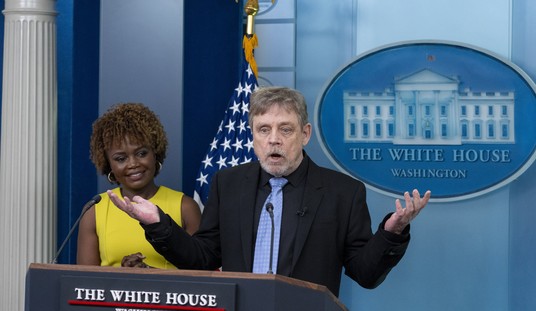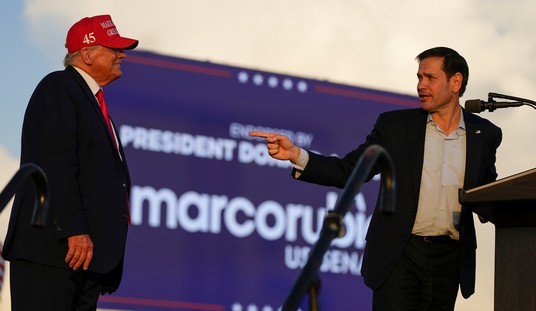As Glenn Reynolds remarked last night, “On this issue, I’m 100% with [the White House].” After Derek Khanna and his allies received well over 111,000 signatures on a White House petition protesting the new rule from the Library of Congress that criminalized the unlocking of cell phones, the Obama administration has responded by recognizing how ridiculous the law was, and now says it will work to overturn it:
In January, the Library of Congress made unlocking a violation of a little-known provision of copyright law. Anyone who tried to do so could face criminal and civil penalties.
The decision quickly sparked an outcry from online activists. Taking to social media, blogs and the White House’s own protest forum, they collected over 114,000 signatures in just a few weeks.
In response, the Obama administration said it would support legislation to overturn the decision by the Library of Congress, which houses the U.S. Copyright Office. The White House also called on the Federal Communications Commission to intervene.
“It’s common sense, crucial for protecting consumer choice, and important for ensuring we continue to have the vibrant, competitive wireless market that delivers innovative products and solid service to meet consumers’ needs,” David Edelman, President Obama’s senior Internet adviser, wrote in a blog.
The Washington Post credits “Internet activists,” and later mentions Khanna’s role in publicizing the decision and generating the grassroots outrage that forced the White House to act:
For now, cellphone unlocking remains illegal. But the quick response by the White House demonstrates how officials have become responsive to Washington’s emerging powerbase: Internet activists. …
The quiet change in rules was soon discovered by some tech policy experts, including a 25-year-old former House Republican researcher, Derek Khanna, who wrote a critical article about the decision that was published by several online news outlets.
We should note that the Obama administration had nothing to do with the DMCA or the decision by the Library of Congress, which has some jurisdiction in copyright law interpretation. The DMCA passed a Republican Congress in 1998 and was signed into law by Bill Clinton. At the time, freedom-of-information activists warned of the consequences of some of the bill’s language, but it has largely gone unnoticed in between until House Republicans first floated the Stop Online Piracy Act (SOPA) in 2011.
Internet activists shouted down that attempt, and Khanna — who worked for the Republican Study Committee — wrote a policy brief the next year that opposed SOPA-like efforts that protected big players in the market. That produced some outrage by corporations that the GOP wanted to court, and Khanna found himself out of a job within a few weeks. He has spent his time opposing efforts such as these, which would have made unlocking a cell phone a felony with a punishment up to five years in jail and a $500,000 fine. The White House has made the right decision in pushing for a repeal of this decision, and Republicans should have taken the lead on this long before this.
I interviewed Khanna a little over a week ago for my daily show, which I’ve re-embedded here. I’m also re-embedding the Reason TV interview of Khanna conducted by my friend Nick Gillespie, which is well worth another watch.
Congratulations to Derek, and hopefully we’ll all be more vigilant in the future on this issue.








Join the conversation as a VIP Member